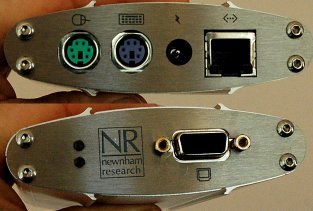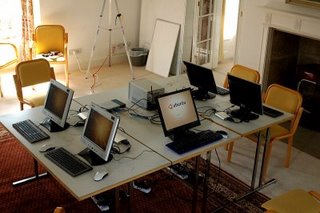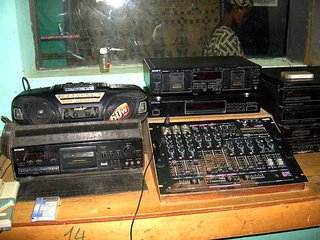Ndiyo - Networked computing for everyone
- simple
- affordable
- open
- less environmentally-hostile
- less dependent on intensive technical support
 Ndiyo (nn-dee-yo), means ‘yes’ in Swahili, an African language. They’ve developed a computer network system that consists of a number of ‘nivo’, which are unltra-thin clients connected to a server PC, operating on open source software. Currently they seem to be using Ubuntu. The system is based on sharing the power of a PC between several users at once. This means, one PC serving between five to ten terminals, which operate just like PCs. Technology to support multiple users at once using a single PC is available via operating systems like Ubuntu. The ultra-thin-client allows an extra display, keyboard and mouse to be connected to the PC via a standard network cable.
Ndiyo (nn-dee-yo), means ‘yes’ in Swahili, an African language. They’ve developed a computer network system that consists of a number of ‘nivo’, which are unltra-thin clients connected to a server PC, operating on open source software. Currently they seem to be using Ubuntu. The system is based on sharing the power of a PC between several users at once. This means, one PC serving between five to ten terminals, which operate just like PCs. Technology to support multiple users at once using a single PC is available via operating systems like Ubuntu. The ultra-thin-client allows an extra display, keyboard and mouse to be connected to the PC via a standard network cable. Ndiyo has join ventured with GrameenPhone, a Bangladesh mobile operator, to open it’s first Community Information Centre (Fultola CIC). It’s an Ndiyo based four-screen internet cafe with internet connectivity via an Edge-enabled mobile phone. So, a mobile phone connected to one PC is giving four people access to the internet simultaneously. Newnham Research, a company created out of Ndiyo project, is producing and supplying the thin-client devices for the CIC.
Ndiyo has join ventured with GrameenPhone, a Bangladesh mobile operator, to open it’s first Community Information Centre (Fultola CIC). It’s an Ndiyo based four-screen internet cafe with internet connectivity via an Edge-enabled mobile phone. So, a mobile phone connected to one PC is giving four people access to the internet simultaneously. Newnham Research, a company created out of Ndiyo project, is producing and supplying the thin-client devices for the CIC.Links:
http://www.ndiyo.org
http://www.grameenphone.com
http://www.newnhamresearch.com
http://www.grameen-info.org/grameen/gtelecom/index.html
http://www.grameenphone.com/modules.php?name=Content&pa=showpage&pid=3:11:1 [Bangladesh Village Phone Program]
http://en.wikipedia.org/wiki/Enhanced_Data_Rates_for_GSM_Evolution


